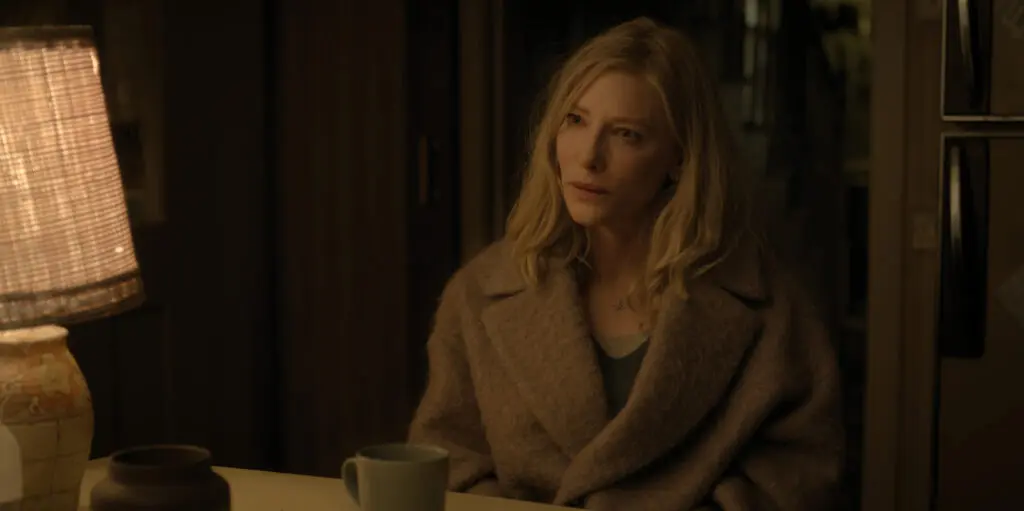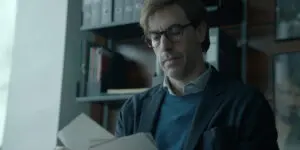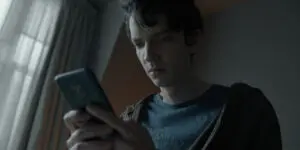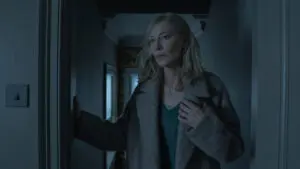Summary
It’s not an easy watch, but the finale of Disclaimer is a truly remarkable hour of television.
I’m not one for hyperbole, as most regular readers will know, so I hope it counts for something when I say that the ending of Disclaimer is truly remarkable television. I’m not one for trigger warnings, either, but Episode 7 should come with one. It’s a horrifying depiction of assault and trauma that speaks with admirable frankness, bolstered by performances — Cate Blanchett is amazing here — that remind you how badly acted most television is.
I don’t know how surprising it all is, but I don’t think that’s the point. Any “twists” in the episode are devoted to underscoring very obvious points that most of us already made weeks ago, not to pull the carpet from beneath viewers or act as cheap gotchas for the sake of easy drama. The previous episode revealed that most of what we’ve seen has been a lie, so it’s not unexpected that this one highlights exactly the ways in which the truth was bent.
Fair warning: It’s probably worse than you were imagining.
We begin where we left things, with Catherine having unknowingly swilled down drugged tea while preparing to finally tell Stephen the truth about what happened to his son. And that part, at least, Nancy got right in her manuscript. Nicholas did swim out to sea while Catherine was asleep on the beach. Jonathan did dive in the water to drag him back to shore. And, while the attention was on Nicholas and two more of his rescuers, Catherine did watch Jonathan drown.
Stephen feels validated by this. But he’s missing the most crucial part of the story, which is what happened the night before.
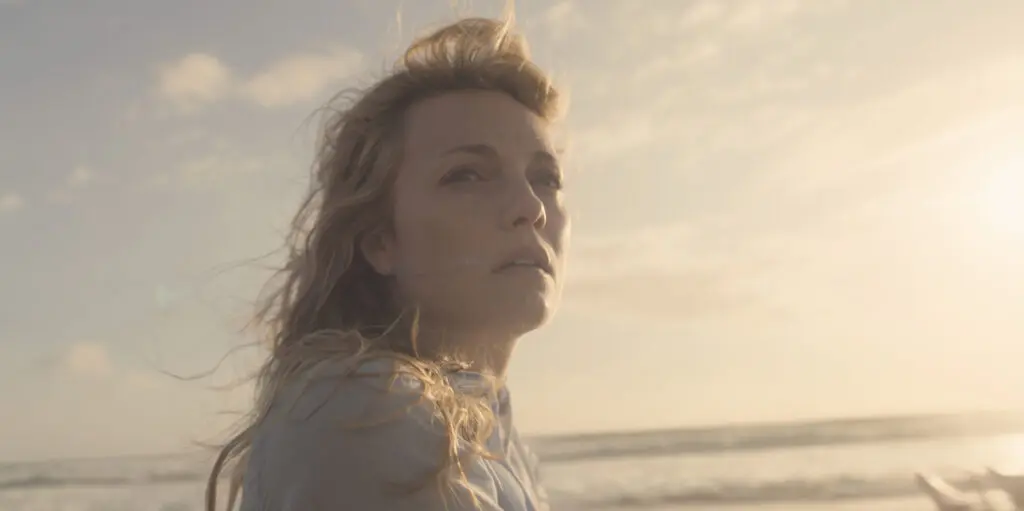
Leila George as Catherine Ravenscroft (2001) in Disclaimer | Image via Apple TV+
The saucy photos of Catherine which so easily gave Nancy a manuscript, Stephen a motive for revenge, and Robert an excuse to detonate his marriage, seem like the smoking gun. What else could they indicate if not an adventurous lover’s tryst? Well, Catherine puts paid to that idea by revealing that the photos were all taken under duress, while Jonathan held her at knifepoint after breaking into her hotel room. There was no bar meet-cute. Catherine didn’t lead him on. After taking unsolicited photos of her on the beach, Jonathan followed Catherine to her hotel room and sexually assaulted her for hours. The photos were his trophies.
This scene goes on for so long and is so powerfully staged that it’s genuinely difficult to watch. Jonathan, who has only been presented to us as an aw-shucks teenage boy lolloping his way through his youth, becomes suddenly monstrous. The dialogue is completely muted, replaced by Catherine’s voiceover, which is perhaps just as well, since it’s obvious that Jonathan has nothing nice to say. He cuts himself and makes Catherine drink his blood. He climaxes while he’s taking the photos, a stain widening on his shorts while his face contorts like a wild animal’s. He forces himself on Catherine again and again, and when he leaves it’s with a parting statement that is horrifying in its mundanity: “Thank you, that was nice.”
From this, we can easily interpret what Sasha’s parents had called Nancy and Stephen about in the previous episode. Jonathan was a monster. Catherine let him die because, after what he put her through, she wanted nothing more. And rightly so.
Stephen doesn’t believe this or at least claims not to. By this point, the drugs in the tea are kicking in. As Catherine becomes woozy and collapses, Stephen tells her that he’s heading to the hospital to finally put an end to this. He still has a syringe full of drain cleaner in his pocket. He leaves Catherine on his kitchen floor and calls a cab.
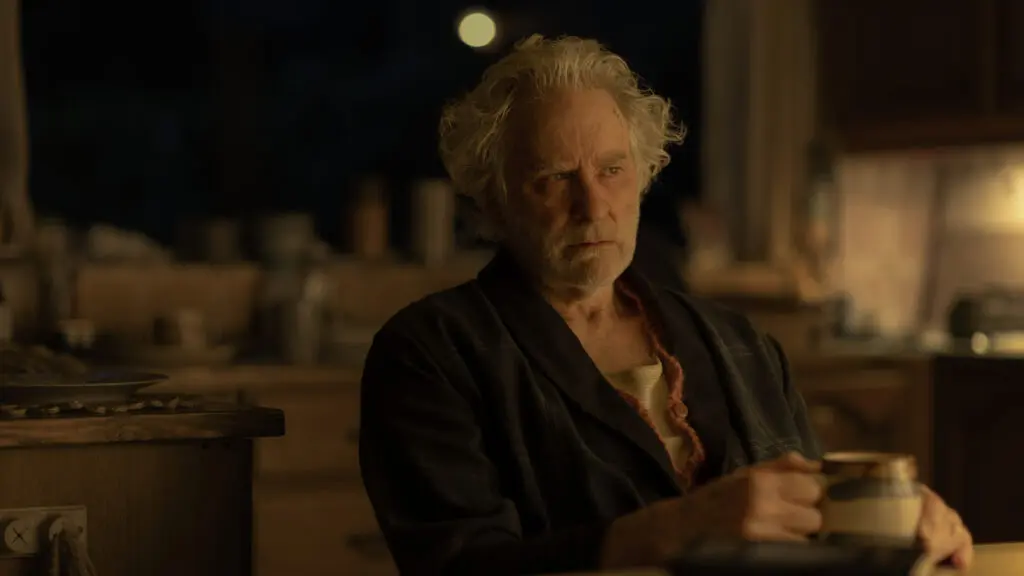
Kevin Kline as Stephen Brigstocke (2024, ‘Present Day’) in Disclaimer | Image via Apple TV+
Catherine is smart enough to recognize she has been poisoned, to make herself vomit and flush her system so she can function enough to flee the house and get a cab behind Stephen’s. But she can’t catch him. She’s slowed down by traffic and a driver who — understandably — can’t risk getting more points on his license. By the time she’s close to the hospital, Stephen is already in the ICU, poised to inject Nicholas with a fatal dose.
But then something happens. Nicholas, barely conscious, wants to die. Begs to. And in that moment Stephen seems to realize the hurt he has caused, and the false pretenses under which he has caused it. He breaks down at Nicholas’s bedside. As he leaves, he looks like he might collapse. Robert tries to steady him, and Stephen tells him he’s sorry. And then he tells him the truth.
We don’t see that last bit. We instead follow Catherine as she sprints through the hospital in panic, fearing the worst. When she reaches the ICU ward, Robert rushes towards her, falling to his knees in front of her, apologizing and sobbing. Nicholas is fine. Stephen offers Catherine an insufficient “sorry” and leaves. The damage has already been done, of course, but it stopped just short of being irreparable.
Catherine and Robert’s marriage doesn’t survive, though. Despite Robert’s fervent apologies for being a spineless weasel, his relief that Catherine was raped rather than that she was unfaithful to him is intolerable to Catherine. But Nicholas, at least, realizes that his mother, the cause of so much of his pain, is innocent of what he most feared; that the core of his self-loathing was a ruse. The ending of Disclaimer doesn’t offer us much more than the indication that they’ll be able to repair their relationship, but I like to think they will.
As for Stephen, he burns his copies of The Perfect Stranger, and the lewd photographs of Catherine, and his cardigan, and his wedding band. His realization is perhaps the most painful of all — that, on some level, he knew what Jonathan was, and chose to ignore the signs and perpetuate his wife’s delusions. He is as guilty in what happened to Catherine as Jonathan was, and more guilty in what happened afterwards than anyone. In a final cruel twist of fate, one of the burning photos reveals a reflection of a young Nicholas in the hotel mirror, watching his mother be raped. Stephen’s denial of his son’s nature was the failure that began a decades-long tragedy. And he knows it.

